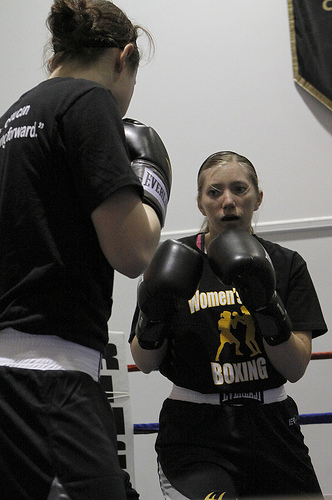Whenever men are not obliged to fight from necessity, they fight from ambition. – Niccolò Machiavelli

Are they obliged to fight, or do they have ambitions? Remember that not all ambition is detrimental.
What does that mean?
This is sad, but true. There are times when people are forced to fight. The violence at that point is somewhat forgivable, or at least be able to somewhat transfer the blame. One would hope that when they aren’t obliged to fight (either in defense, or required by their government to be part of an offensive force), they would shy away from fighting.
However, the quote finishes with a statement to the opposite. It is important to remember that in this work, he is discussing the writings of another author, Livy, in this case. The discussion was of based on the premise that people desire more than they can attain.
The gap between what they want and what they have is stated as the primary motivation for the “fight from ambition” portion of the quote. Unfortunately, it still appears to be the case, even in this day and age. Whether it’s over friends, a parking space, or the last “must have” item (from Beanie Babies to the iPhone), ambition leads to difficulties.
Why is managing our ambition important?
It is so easy to say “Oh! I want that!” right? However, most of us have at least a little self control. We think before we grab, or buy, or steal, or otherwise try to satisfy the ambition. And what we want, or for which we have ambition, isn’t limited to physical items.
Sometimes the ambition is for power, love (or more frequently, lust), or positions of authority or control. Whether it’s a 3rd world dictator, your local government, or the guy down the street, naked, blind ambition is a very ugly thing.
As I stated earlier, we all have urges from time to time. The question is what do we do when we get the urge? Little kids often lack the impulse control to stop themselves, which is the start of many of the fights in your average daycare setting.
As somewhat more mature adults, hopefully we succumb to the urges a little less often. And hopefully we have the discipline, wisdom, and intellect necessary to not do all the things that cross our minds. We may have different reasons for not doing something, but (to me, at least) the important point is that we resist the urge.
Where can I apply this in my life?
The answer will depend on how much control you presently have over your ambitions. If you have things pretty much under control, perhaps you will want to consider how to help others achieve what you have, or perhaps to help others recognise the error of their ways.
For those who don’t have much control, perhaps you will want to consider what you can do to get better control over your impulses. That might start by considering what gives you the strongest desires, what is the most tempting things in your life.
Once you have a feel for what your weaknesses are (if I may be so bold as to say it in that manner), you might then want to consider why such things are so hard to resist. What need do they fill, what is missing from your life that they help complete you?
Also consider what your emotional state is before and after you succumb to your ambition. Do you get a rush, a high, from completing the action? Whatever the change in state you experience may be, consider what other actions you could take to achieve a similar emotional result.
Once you know more about what your motivations, desires, and rewards are, you can better plot how to redirect yourself. If your ambitions give you an emotional reward, when you detect the desire starting to build, you can try to find a more appropriate outlet, and satisfy yourself in that manner instead.
So, in short, this post is about fighting the desire to fight. To resist the temptation of raw, naked ambition. It’s up to you to determine what ambitions are valid and useful (to you, your family, your friends, your community, your country and/or the rest of humanity).
I believe that best decision you can make will require the information contained within you. Once you can determine the motives behind your actions, you can determine if you are doing it for the best or worst reasons.
Determine the reasons for your emotions, and the needs they satisfy, and you can determine how best to satisfy yourself and your needs. You can also find the ways to do so that harm the fewest and benefit others, so you do more good than harm.
As usual, I advocate for looking within, for examining yourself and what you do, so as to best be able to improve your life, and the lives of others. What you chose to do is, as always, up to you.
From: Twitter, @AskMen
confirmed at : Discourses on Livy (Chapter 37, second sentence)
Photo by West Point Public Affairs






